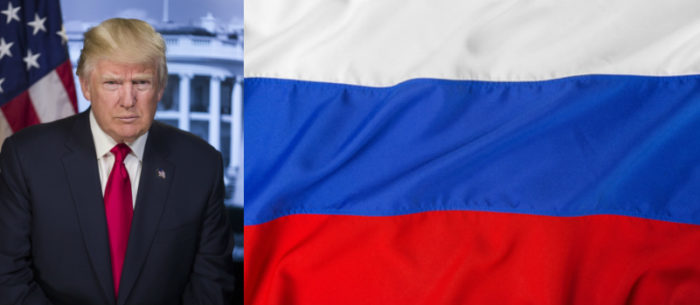A resolution aimed at forcing the U.S. Treasury to maintain sanctions on three Russian corporations linked to a pro-Kremlin “oligarch” fell three votes short in the U.S. Senate on January 16.
Eleven Republicans joined the Democrats present to support the resolution, but Iowa’s Senators Chuck Grassley and Joni Ernst voted with the rest of the GOP caucus to defeat the measure. Although the vote was 57-42 in favor (roll call), Senate rules require 60 votes to clear this kind of procedural hurdle.
Kenneth Vogel reported for the New York Times,
The sanctions against companies controlled by the influential oligarch, Oleg V. Deripaska, now seem destined to be lifted this week as part of a deal negotiated by the Treasury Department to reduce Mr. Deripaska’s ownership and control of the aluminum giant Rusal and two linked companies.
Sanctions against Mr. Deripaska personally, which had gone into effect last April, remain in force and would not have been affected by the Treasury Department decision or the Senate measure. Mr. Deripaska’s companies waged an aggressive lobbying and legal campaign against the sanctions last year. The administration first delayed putting sanctions on the companies into effect and then announced last month it would lift them entirely.
Daniel Flatley and Laura Litvan reported for Bloomberg,
Treasury Secretary Steven Mnuchin lobbied GOP senators at the Capitol Tuesday to defeat the measure and indicated he’s not backing down from his plan to lift sanctions against the companies. […]
Mnuchin has said that Deripaska, not the companies, was the intended target of U.S. sanctions imposed in April on associates of Putin over Moscow’s interference in the election. Under Deripaska’s agreement with Treasury to remove sanctions from the three companies, the oligarch would cut his ownership shares to about 45 percent of each company, the boards of En+ and Rusal would be overhauled, and they would submit to Treasury audits.
Schumer and other critics say the agreement would still let Deripaska control the companies through his close ties to other shareholders. […]
Plans to remove the sanctions are not politically motivated, but were negotiated with the assistance of longtime civil servants at Treasury, Mnuchin told reporters Tuesday after meeting with Senate Republicans.
Having covered Russian politics in the late 1990s and early 2000s, I can confirm that Deripaska has been among the business leaders closest to the Kremlin since President Vladimir Putin’s earliest years in power. It’s farcical to suggest Deripaska won’t be running these companies after formally reducing his ownership stake to 45 percent. Russian oligarchs have exerted de facto control over other large corporations even when owning less than a majority of shares.
Staff for Grassley and Ernst did not respond to e-mails on January 16 seeking comment on this vote. Nor did either senator discuss the action in a news release or on their social media feeds.
In February 2017, Ernst was among eight Republican senators who urged President Donald Trump to “pursue a results-oriented, but tough-minded and principled policy toward the Russian Federation.” In particular, their letter argued,
The Administration should maintain the current U.S. sanctions regime against Russia and Russian entities – and to impose new sanctions as necessary and merited by Russian behavior –unless Ukraine’s control over Crimea is restored, Russia fully respects the Minsk agreements, and ceases all efforts to undermine Ukraine’s sovereignty.
The Treasury Department’s decision to accommodate Deripaska has drawn criticism in part because the oligarch has had longstanding ties to Trump’s former campaign manager Paul Manafort. As Franklin Foer covered in detail for The Atlantic last year, Manafort courted Deripaska to fund investments in Russia and Ukraine through a private-equity firm called Pericles.
For Pericles’s first deal, Manafort used Deripaska’s money to buy a telecommunications firm in Odessa called Chorne More (“Black Seas,” in English) at a cost of $18.9 million. He also charged a staggering $7.35 million in management fees for overseeing the venture.
Deripaska asked Manafort for his share of the $18.9 million back following the 2008 financial crisis and pursued the debt repayment in court years later. Documents related to special counsel Robert Mueller’s investigation of the Trump campaign’s ties to Russia show that Deripaska also gave Manafort a personal loan of $10 million at some point. Just two weeks after being named Trump’s campaign manager in the spring of 2016, Manafort reached out to Deripaska through a Russian contact, hoping to leverage his new job to “get whole” with the oligarch. In July 2016, Manafort “offered to provide briefings” to Deripaska about the presidential campaign.
I will update this post as needed with any public explanation Grassley or Ernst provide for helping lift sanctions on Deripaska’s companies.


1 Comment
I wonder if
they filled out the appropriate FARA forms first. OK, kidding, but…you get my drift. Joni once wore the uniform of the United States. Now she has shat upon it, and lost is the number times recently Putin has peed his pants in laughter at what he has accomplished. Grassley. I can’t find the words. Once upon a time, far, far, far away in time, I had a measure of respect for the man.
Fly_Fly__Fly_Away Fri 18 Jan 9:38 AM